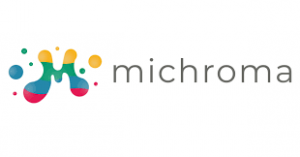You have ever wondered why vegan burgers can have a pink center, why candy and beverages have such a large range of crazy colors, or why your favorite cotton candy ice cream is a bright, fresh blue? The colors of food matter more than we might realize. According to Allied Market Research, the food colorant market is worth $2 billion, and it is all about making what people eat look tasty. Food colorants, whether natural or artificial, are added to almost everything, ensuring food looks tasty and appealing.
For a long time, artificial colors, made synthetically from petroleum, for example, were the go-to choice. But the world is changing. People are worried about synthetic colors’ health and environmental effects, which is raising interest in natural options. Nevertheless, nowadays with more people preferring vegan alternatives, companies are investing time and money to find new, animal-free ways to color food.
The food colorant market is expected to reach $3.5 billion by 2027, as indicated by Allied Market Research. Companies are getting creative to meet demands for natural, sustainable, and ethical coloring. They are applying techniques like precision fermentation or tapping into the power of fungi and algae. It’s not just about making food look good; it’s about making sure it’s good for consumers and the planet.
In this article, we’ll take a closer look at the colorful world of food coloring and explore 5 startups leading the way in creating new dyes.
mmmicoeats 🇪🇸, part of the Spain FoodTech Cohort 2023 by Eatable Adventures, is reshaping our approach to ingredients by challenging the reliance on synthetic elements ingrained in our lives. They have identified a solution by turning to the oldest life forms on Earth: microorganisms. This innovative startup employs a blend of fermentation, artificial intelligence (BIOMETHEUS®), and ‘Directed Evolution’ to rapidly evolve microorganisms in their lab. This process compresses millions of years of natural evolution into months, offering sustainable alternatives to harmful synthetic ingredients. With ROSASTA® as a versatile microbial extract, mmmicoeats brings innovation to food, nutraceuticals, cosmetics, and animal feed industries, promising a future where nature and technology collaborate for a healthier world.
Spira, 🇺🇸a pioneering US-based startup, is revolutionizing industries with its creation of carbon-negative materials derived from genetically engineered algae. Collaborating with a global network of farming partners, Spira produces ingredients for food, cosmetics, and textile companies. The startup is particularly renowned for its Spirulina-based natural dye, Electric Sky, a vibrant blue hue serving as a sustainable alternative to synthetic blue dyes and animal-based color components in both food and textiles. Not only does Electric Sky offer superior coloration, but it also brings nutritional benefits with antioxidant and anti-inflammatory properties. Notably, this innovative dye is sustainable, vegan, and non-allergenic, showcasing Spira’s commitment to advancing eco-friendly and ethical solutions in the market.

Michroma 🇦🇷, is at the forefront of creating the next generation of natural ingredients in collaboration with fungi. Specializing in natural flavors, antioxidants, and vibrant colors, they offer a sustainable and 100% natural solution for all diets. Notably, Michroma introduces Red+, an innovative and award-winning bright red shade, a premium natural colorant that is stable in high temperatures and across various pH ranges. Red+ is cost-effective, non-GMO, vegan, kosher, and halal, with no residual taste. Michroma’s commitment to sustainability and scalability positions them as pioneers in disrupting the ingredients industry, with a focus on biomanufacturing for a healthier and m
ore sustainable future. Stay updated for upcoming releases on natural flavors and fragrances as they continue to redefine the landscape of natural ingredients.
Phytolon 🇮🇱, a leader in natural colors, is redefining the landscape with its vibrant and eco-friendly solutions. Offering a spectrum of yellow, orange, red, pink, and purple hues, Phytolon addresses the performance and economic needs of diverse food categories while prioritizing both people’s health and the planet’s well-being. Their high-performing natural colors boast a clean label, ensuring a perfect balance between visual appeal and product quality, from dairy to plant-based meat and confections. With a focus on sustainability, Phytolon’s agriculture-free production system guarantees a consistent and robust supply of fermentation-based products year-round, independent of agricultural and geopolitical changes. Committed to making a positive impact on climate change, Phytolon’s fermentation-based solution aligns with global demands for reduced carbon footprint and conservation of natural resources.

Chromologics, 🇩🇰 is a biotech startup spin-out from the Technical University of Denmark (DTU), it emerged from the discovery of a unique group of fungal pigments during Gerit’s PhD at DTU. The founders, both with academic backgrounds, decided to explore the commercial potential of this invention, leading to the creation of Chromologics. The company’s proprietary fermentation process positions it as a pioneer in introducing lab-grown food colorants to the market. With Natu.Red® color as its flagship product, Chromologics is at the forefront of driving the transition towards a more sustainable future.
In the dynamic world of food coloring, the pursuit of natural, sustainable, and ethical alternatives paints a promising future. As the $2 billion food colorant market burgeons, a palette of innovative solutions emerges. From microorganism-based technologies to plant-derived hues, these advancements signify a shift towards eco-conscious choices. The journey towards vibrant, visually appealing products aligns with a broader commitment to fostering a healthier, more sustainable food sector landscape. This evolution reflects a blend of innovation and ethical considerations, marking a path where the art of food coloring transforms into a sustainable masterpiece.

